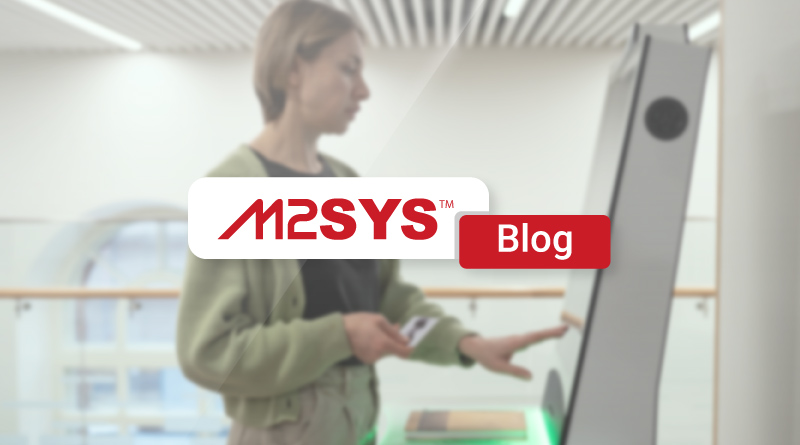Enhancing Citizen Data Security in AI-Powered eGovernment Solutions
Cyber attacks on government systems have surged by 50% in the past year, highlighting the need for robust defenses in AI-powered eGovernment solutions. These systems automate tasks and improve service delivery, but without strong security measures, they risk exposing sensitive citizen data to hackers.
TL;DR
- Cyber attacks on government systems have surged by 50%, highlighting the need for robust security in AI-powered eGovernment solutions.
- AI solutions improve service delivery but can expose sensitive data without strong security measures.
- Outdated software and poor access controls make systems vulnerable to cyber threats.
- Compliance with regulations like GDPR and HIPAA is crucial to avoid fines and legal issues.
- Transparent AI practices build public trust by explaining data usage and decision-making processes.
- Integration challenges with legacy systems can inflate costs and delay deployment.
- Scalable environments ensure data security as systems expand, maintaining service availability.
- Privacy-first approaches enhance data protection and service efficiency.
- The M2SYS eGov platform offers scalable, secure, and compliant solutions for AI-powered eGovernment services.
Discover how M2SYS can enhance your eGovernment solutions by visiting our contact page to learn more.
Did you know that cyber attacks on government systems jumped by 50% in the last year alone? This surge highlights a pressing need for stronger defenses in public services. As governments turn to AI-powered eGovernment solutions to modernize operations, protecting citizen data becomes essential. These solutions automate tasks and improve service delivery, but without solid security, they risk exposing sensitive information. Government agencies face daily threats from hackers seeking personal details like addresses and financial records. Software vendors and integrators also struggle with blending new tech into old systems while meeting strict rules. Yet, effective strategies can shield data and build trust.
What Makes AI-Powered eGovernment Solutions Vulnerable to Cyber Threats?
Hackers often target weak points in digital systems, such as outdated software or poor access controls. For instance, a 2023 report from Cybersecurity Ventures predicts cybercrime costs will hit $10.5 trillion annually by 2025. Government agencies deal with vast amounts of data, from tax records to health information, making them prime targets. Moreover, integrators find it tough to connect AI tools with legacy setups without creating gaps. This leads to delays and higher costs, as teams spend months patching vulnerabilities. However, focusing on built-in security features helps mitigate these risks. Platforms that prioritize encryption and regular audits reduce breach chances significantly.
How Can Governments Ensure Compliance in AI-Powered eGovernment Solutions?
Regulatory standards like GDPR and HIPAA demand strict data handling practices. Agencies must comply to avoid fines and legal issues, but many lack the tools to do so efficiently. For example, a recent study by Deloitte shows that 70% of public sector leaders worry about meeting these requirements amid digital shifts. Software vendors face pressure to design compliant systems from the start, while integrators handle the complex task of aligning new AI with existing rules. Therefore, choosing platforms with automated compliance checks simplifies this process. Such tools track data usage and flag potential violations, ensuring smooth operations.
Building Public Trust Through Transparent AI in eGovernment
Citizens hesitate to use online services if they doubt data safety. A Pew Research survey reveals that 81% of Americans feel concerned about how companies handle their information. Governments can address this by adopting clear AI practices that explain data usage. For instance, transparent algorithms show users how decisions get made, fostering confidence. Additionally, real-world examples prove this works. In Yemen, a voter registration project created a secure database for 14 million citizens, cutting disputes and boosting trust in elections. Similarly, Nigeria’s system registered biometrics for over 140 million mobile users, preventing fraud and aiding compliance.
Addressing Integration Challenges in AI-Powered eGovernment Solutions
Merging AI with old systems often causes headaches for agencies and vendors. Deployment delays arise when incompatible tech leads to rework, inflating budgets. A Gartner report notes that integration issues cost organizations up to 20% more in project expenses. Integrators spend time troubleshooting, which slows service improvements. However, platforms offering seamless connections ease this burden. They allow quick setup without major overhauls, saving time and money. As a result, governments deliver faster services while keeping data secure.
The Role of Scalable Environments in Securing Citizen Data
Growing data volumes demand systems that expand without losing security. High availability ensures services run nonstop, even during outages, while disaster recovery plans protect against losses. For example, the City of Columbia in South Carolina improved workforce tracking across 50 offices, reducing time theft and cutting infrastructure costs. In Las Vegas, a recreation access system streamlined check-ins for 20,000 residents, ditching plastic cards for efficient, secure methods. These cases show how adaptable setups maintain security as needs grow.
Why Prioritize Privacy-First Approaches in eGovernment?
Privacy-first designs put user data protection at the core, using tools like biometrics for safe access. This approach automates tasks without risking leaks, helping agencies serve citizens better. Moreover, it tackles pain points like high deployment costs by streamlining processes. Trends indicate that governments investing in such methods see 30% faster service delivery, according to McKinsey. Therefore, these strategies not only secure data but also enhance overall efficiency.
Discover How M2SYS eGov Platform Strengthens AI-Powered eGovernment Solutions
With over 20 years of experience working with governments worldwide and in the US, M2SYS brings proven methods to these challenges. The M2SYS eGov platform builds and delivers eGovernance solutions that integrate AI for task automation and secure data handling. It provides a scalable SaaS environment with high availability and disaster recovery, guarding sensitive information effectively. For agencies facing integration hurdles, it connects smoothly with legacy systems, cutting delays and costs. Vendors and integrators benefit from its compliance tools that mitigate threats and ensure regulatory adherence. By focusing on transparent AI, it builds public trust, as seen in projects like Yemen’s voter system and Nigeria’s registration efforts. Governments using this platform automate administrative work securely, empowering efficient service delivery. To see how it fits your needs, consider exploring more about its features. Contact us.
Frequently Asked Questions About AI-Powered eGovernment Solutions
- What makes AI-powered eGovernment solutions vulnerable to cyber threats?
AI-powered eGovernment solutions are susceptible to cyber threats due to outdated software, poor access controls, and the complexity of integrating AI with legacy systems. Hackers target these weak points to access vast amounts of sensitive data. Emphasizing encryption and regular audits can significantly reduce such risks. For more insights, visit our article on Digital Governance. - How can governments ensure compliance in AI-powered eGovernment solutions?
Compliance with regulatory standards like GDPR and HIPAA is crucial to avoid legal issues. Utilizing platforms with automated compliance checks helps simplify this process by tracking data usage and flagging potential violations. Learn more about enhancing compliance through Enhanced Digital Government Services. - Why is public trust important in eGovernment, and how can it be improved?
Public trust is central to the adoption of eGovernment services, as citizens are often concerned about data safety. Transparent AI practices that clearly outline data usage can bolster trust. Real-world examples like Yemen’s voter registration system and Nigeria's biometric registration efforts effectively demonstrate this.
To explore these examples, visit our thread on the TrueVoter System. - What role does a scalable environment play in securing citizen data?
Scalable environments ensure data security amidst growing volumes by maintaining high availability and implementing robust disaster recovery plans. Discover how M2SYS's scalable SaaS environment supports eGovernment solutions via the M2SYS eGov Platform.









